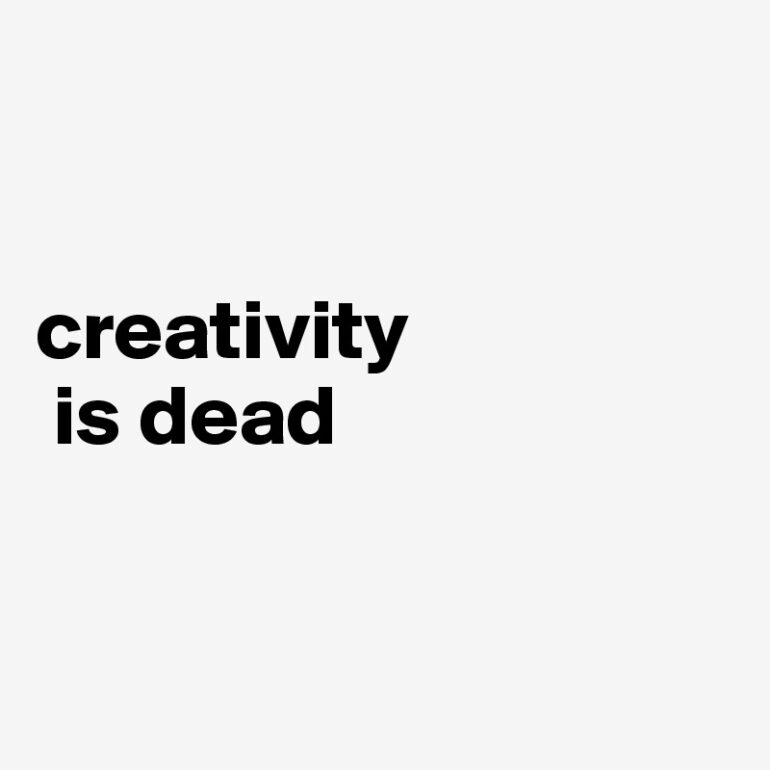Creativity is a gift possessed by each individual. With this talent, we are able to shape and influence our connections not only with ourselves but also with society.
Some of our creative endeavors may not always necessarily have an intention; however, they can grow to serve a purpose in society, and many industries have thrived from creativity. Individuals create things for themselves, and others appreciate it as well. Throughout this experience, many industries have grown, and many people have been rewarded and recognized, Whether that reward comes from fame, money, or even tremendous success, individuals are shown that their creativity is valued in society.
We see much of this show up in many industries such as film, music, fashion, etc. However, I pose this question to you: Is money killing creativity? Before we knew that our creativity could be, necessarily transactional, it all came from a drive of wanting to do something purely for the sake of doing it, without an outcome in mind. As a society, we have become fixated on power and the desire for financial success, which has left many individuals to lose sight of their initial inspiration.
I recently listened to Emma Chamberlain’s podcast Anything Goes. Chamberlain’s podcast covers a wide range of topics from pop culture, to advice, and even some of Chamberlain’s personal experiences. However, in this specific episode, it was with a Canadian musician Mac DeMarco. During this episode, DeMarco discusses what has inspired him creatively throughout his music career, and what motivates him when producing music. It was truly captivating, not just to hear his personal perspective on how significant the music industry is to him, but how it has also served to be a continuous source of inspiration for him throughout his career.
One aspect of the podcast that really intrigued me is when he mentioned how money should be taken out of the music industry and how that would change the trajectory of the music being produced and pitched. Listening to an artist advocate for the removal of money had been fascinating since for the majority financial gain is often considered to be the motivation behind it all.
Demarco talks about taking a break from music for a while and how that time away from the industry really showed what was important to him. He realized that creating music for himself was really the most important. Not the pressure of whether or not society or the record label approved, but how it felt to him. The perspective shared by him was deeply respected, highlighting how external influences can have the power to impact someone’s point of view.
Filmmaking is another industry that provides a distinct example. Movies are produced to make money. Yes, there often needs to be money involved to even create productions. The outcome is not always known and for many films, it’s not what they expected. Some films may not land. However, there are many films that do really well, some that even surprise people. Performance can often enable repetition and even manipulation. An example of this behavior would often be movie sequels and tv show reboots. Although sequels can offer another approach or even a new outlook, these productions can often be an example of people losing creative inspiration and for some, just a money-hungry approach. Many films achieve great success initially, but their sequels often fail to match or even compare to the original. This could be from a weak plotline or even a whole new cast that doesn’t compare. Despite the idea that most shows and movies are all up for personal interpretation, there are instances when something becomes repetitive or loses its excitement.
The source of continued awe stems from human’s incredible power to create and inspire one another. This concept portrays how we can feel connected to other individuals through the mediums of music, film, and art. We can have the capacity to express both disapproval and affection toward various things. That’s what makes creativity all the more valuable to society. Creativity is born from authenticity, a product of something so uniquely you, and not fueled by external rewards or validation.



